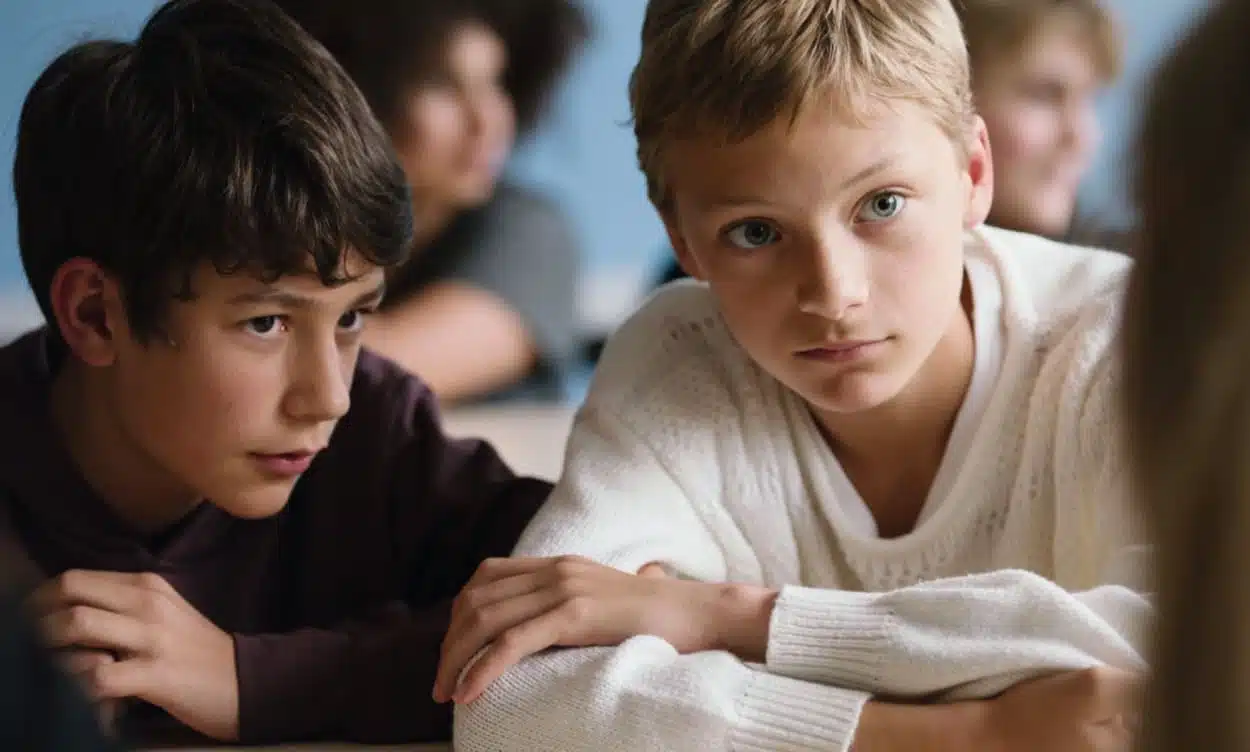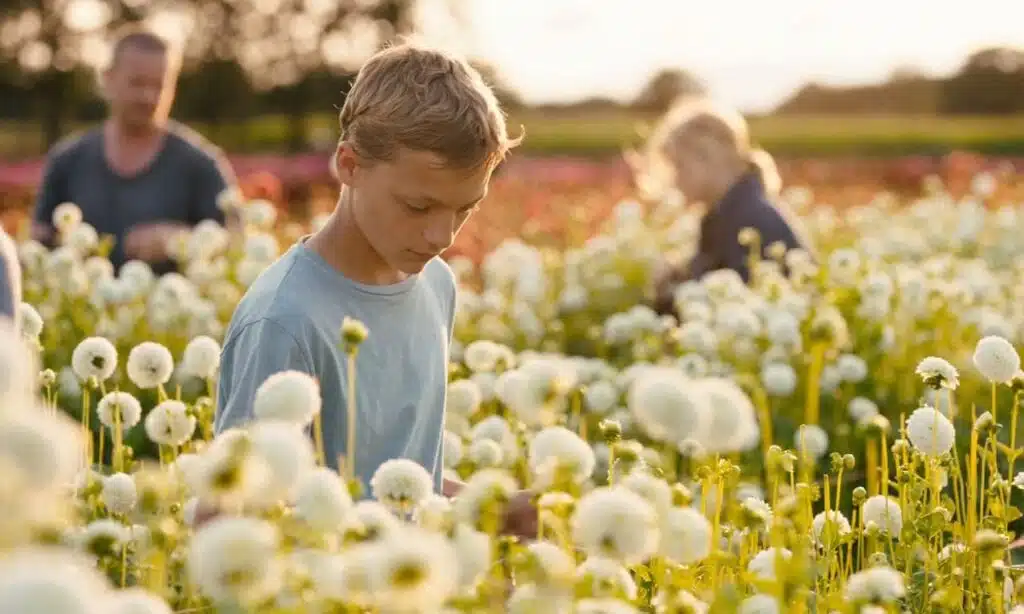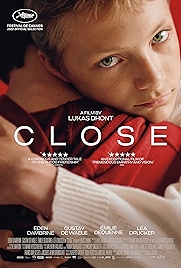Close by name and nature, this intense, tightly packed, intimate study of a friendship between two 13-year-old Belgian boys took the Grand Prix prize at Cannes, where they do like a bit of a wallow.
Beautifully made and sensitively played, it starts out in one territory but ends in another. The focus is on Leo and Remi, two lads in their last summer before puberty, or possibly the first one since the hormones announced themselves – either way we’re right on a cusp of big changes. Their boyish closeness – families who know each other, sleepovers possibly since childhood, everything shared – is sketched out in opening scenes of bucolic intimacy by writer/director Lukas Dhont, who dredges everything in the warmest, most sun-kissed idyllic looks, and keeps his camera tight to emphasise how hermetic the world of Leo and Remi is.
Then the two boys go to a new school, the big school, where they are asked, teasingly but with an angular edge, if they might be, you know, a couple. They are genuinely baffled by the questioning but it’s enough on its own to shift the centre of gravity of their relationship.
Leo (Eden Dambrine) is the more unsettled by the remarks. If he is harbouring homosexual desires for his buddy, Dhont has not shown us, nor has Dambrine’s acting revealed anything in that direction. It is not that sort of film, which is unusual.
Whatever the motivation, which remains opaque, Leo and Remi (Gustav De Waele) start to drift apart, mostly at Leo’s instigation. Leo finds a new friend in Baptiste (Léon Bataille), takes up ice hockey, but still makes occasional attempts to connect to Remi, who rebuffs him.
It’s painful to watch, it really is. Because Dhont so effectively evokes the emotional terrain. I’m not a Belgian teenager in the 21st century and yet everyone who has grown up will have experienced something like this, particularly at those pinch points – changing schools, for example – where settled friendships break down. Dhont brings it flooding back.
There’s a raw emotionality to this movie which is quite remarkable. Dhont is aiming to get interiority on screen, which really isn’t easy, and achieves it with shallow focus and a febrile camera, warming and cooling visuals to suggest varying emotional temperatures and a sound design and score which occasionally do each other’s work. Everything is very tightly woven.
Something major does happen. Spoiler territory. The drifting suddenly becomes a rupture, and then something worse and the film shifts focus more emphatically towards Leo.
Cool acting by Dambrine here, who puts on a great show of being the teenager who is struggling to keep it together and only occasionally cannot. In Close emotions don’t present themselves so much as leak out through whatever cracks are available.
Dambrine is helped in the second half of the film by Émilie Dequenne, as Remi’s mother, another performance of tentative explosive emotion held in tight check. As for the other actors, there is talent here (Léa Drucker as Leo’s mother, for example) but they are so far down the pecking order dramatically that it doesn’t matter.
Films about loss are a tough sell and sometimes you have got to wonder why people are doing it. Because it’s necessary, occasionally at least, is the only real answer. But no one wants to live in world awash with breast-beating movies operating as emotional clickbait.
Close does not work like that, and is all the more emotional for it. There is triteness at some points – because life is also trite at times – like the suggestion at one point that time is a great healer. But it rubs along with deeper truths, and powerful emotions. It will probably bring a tear to your eye. It did to mine.
Close – Watch it/buy it at Amazon
I am an Amazon affiliate
© Steve Morrissey 2024


